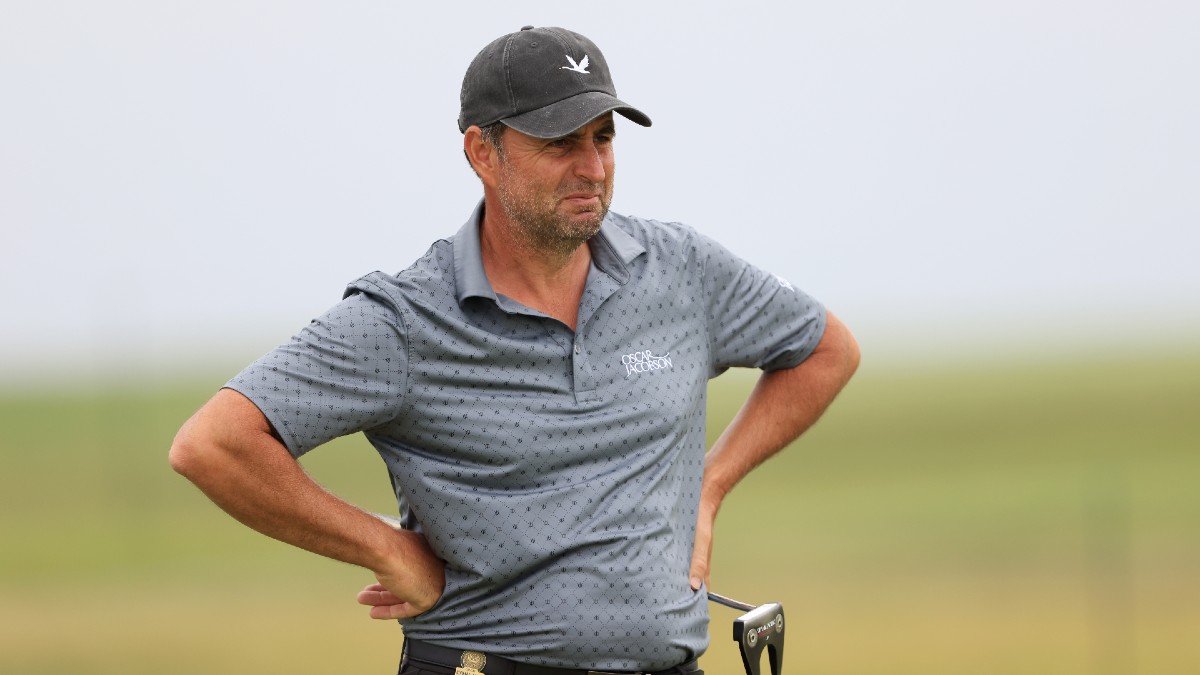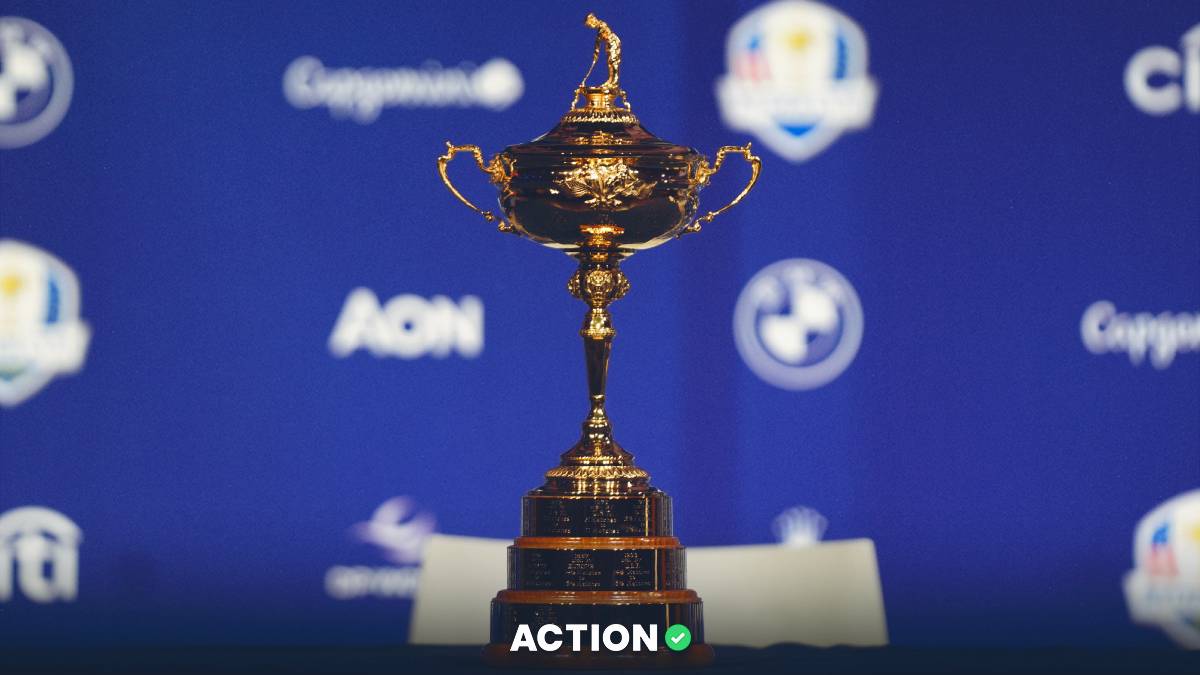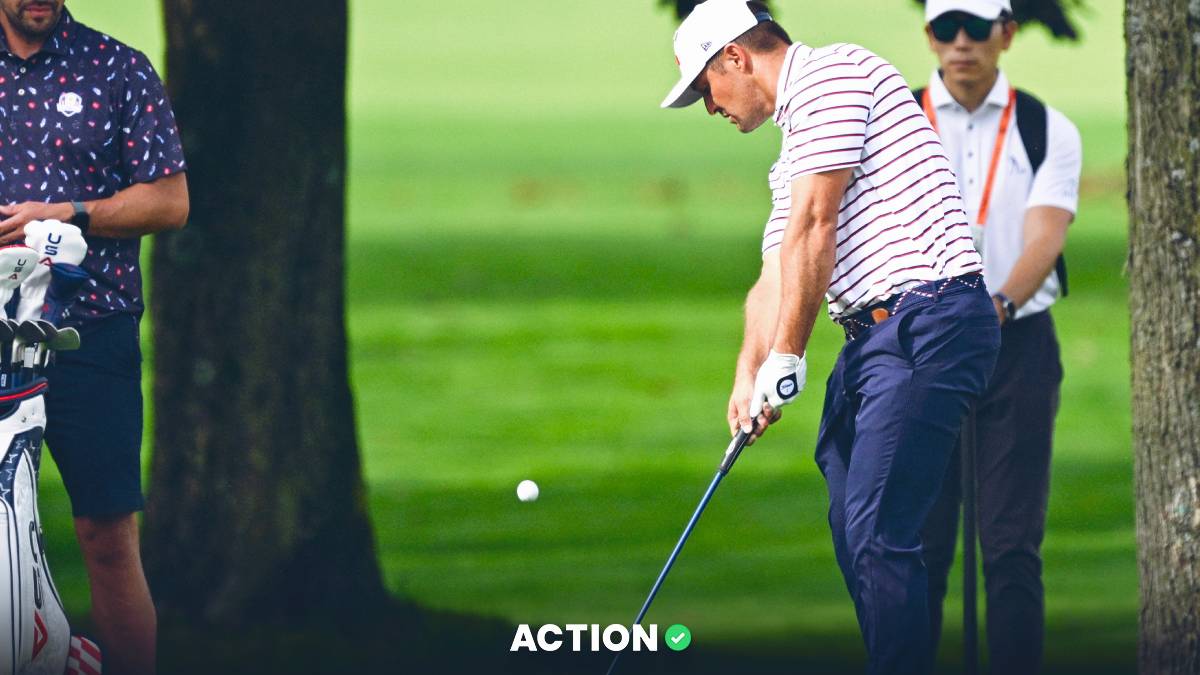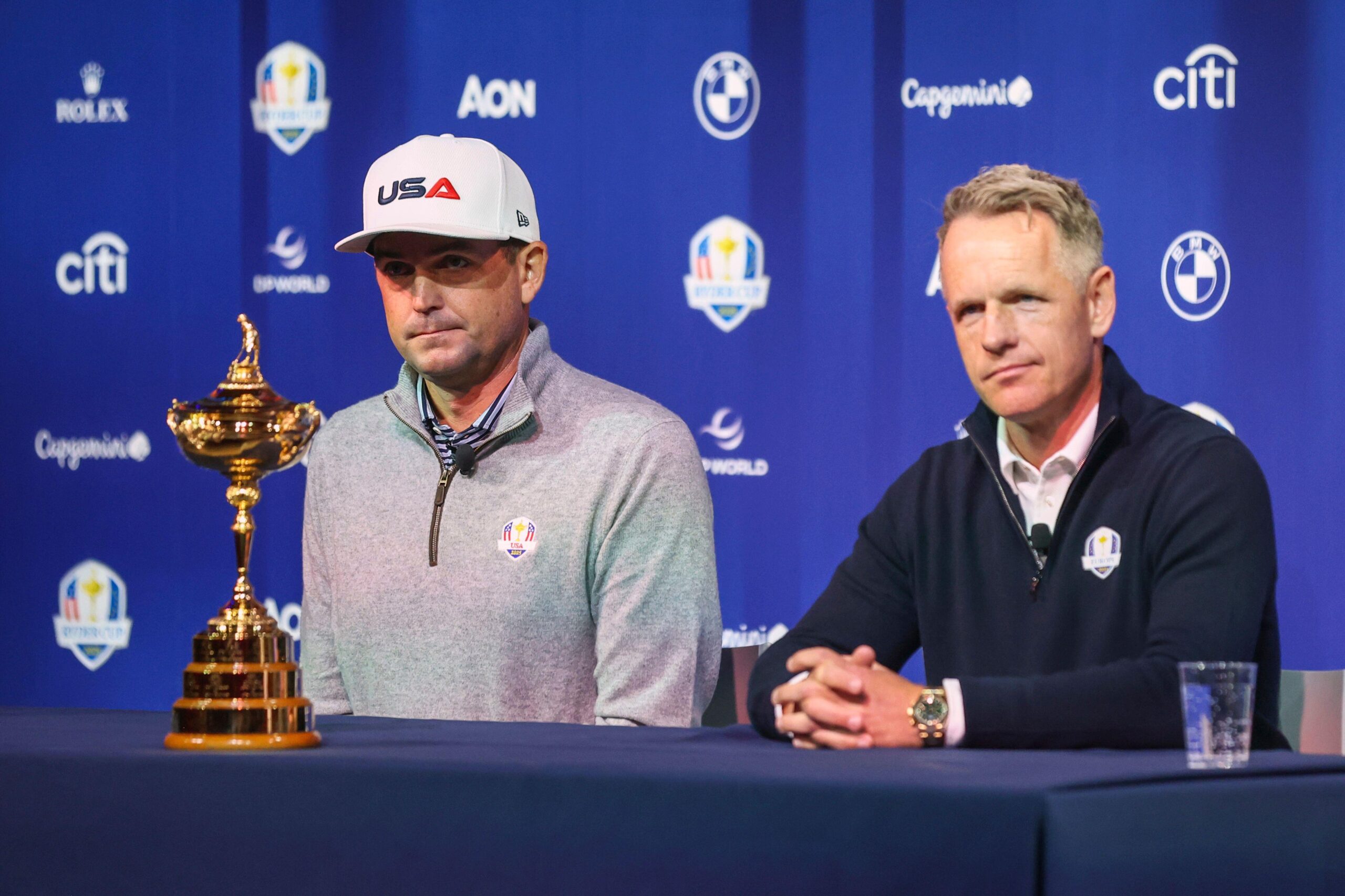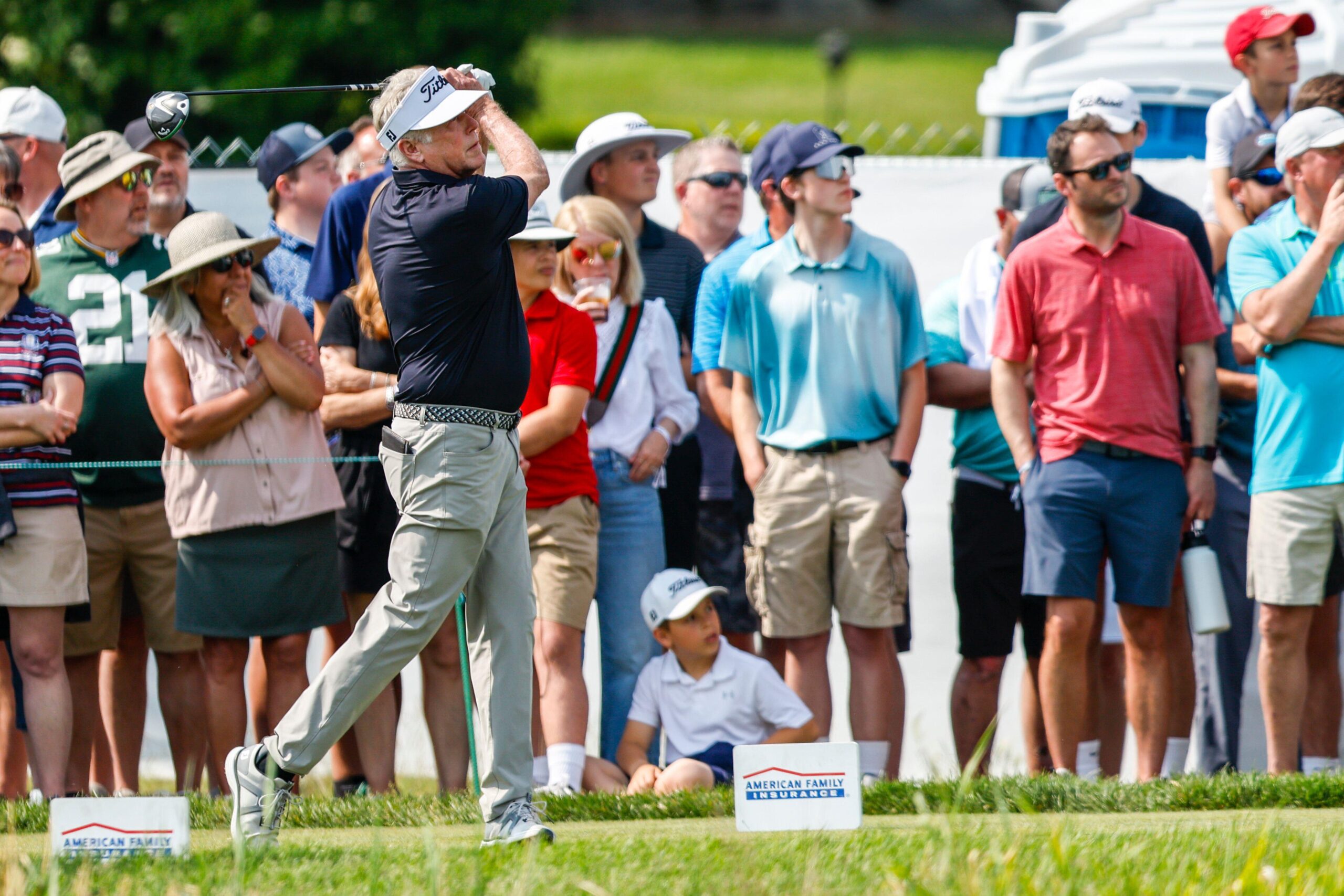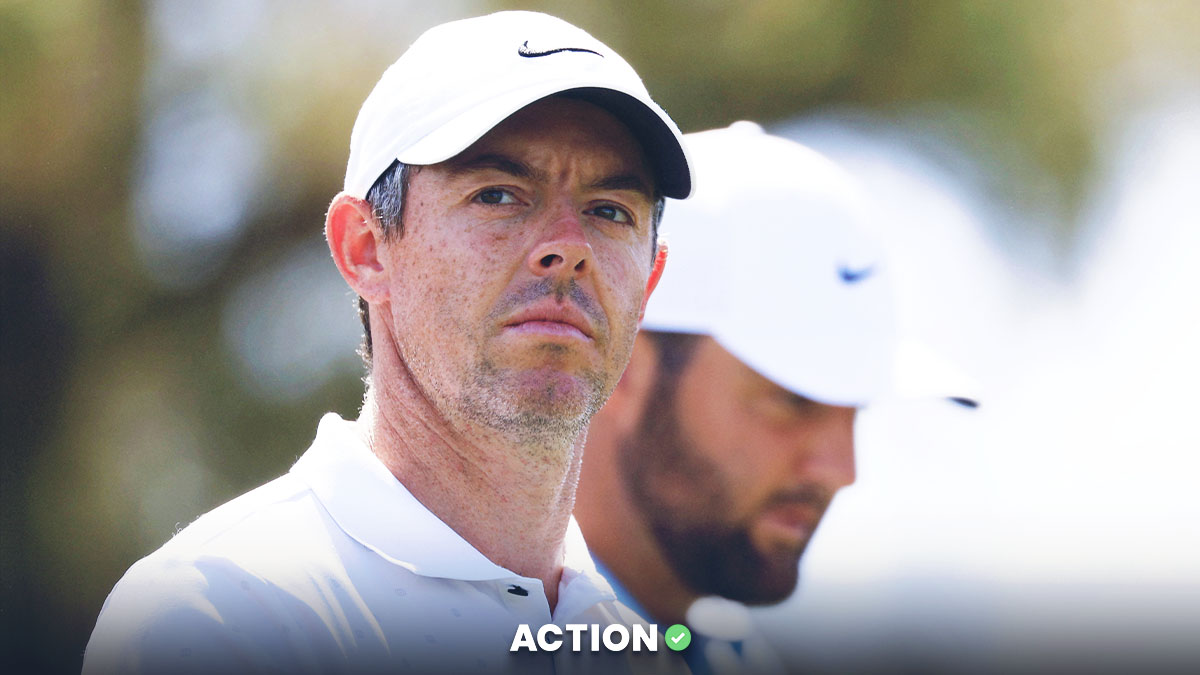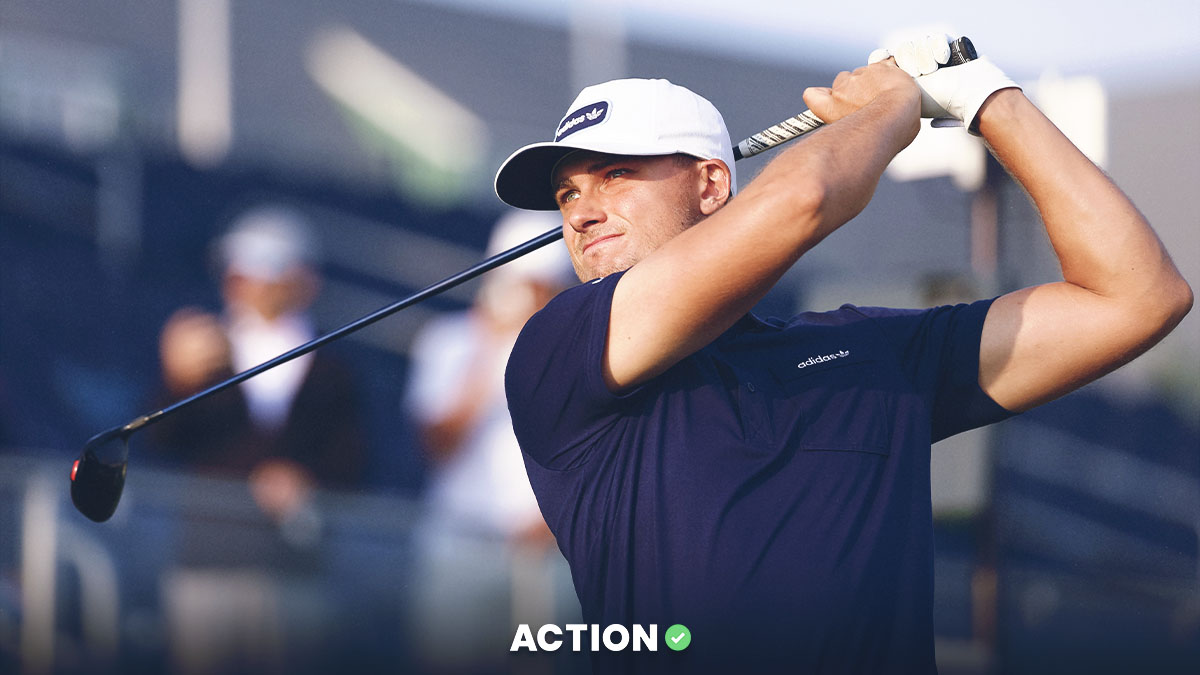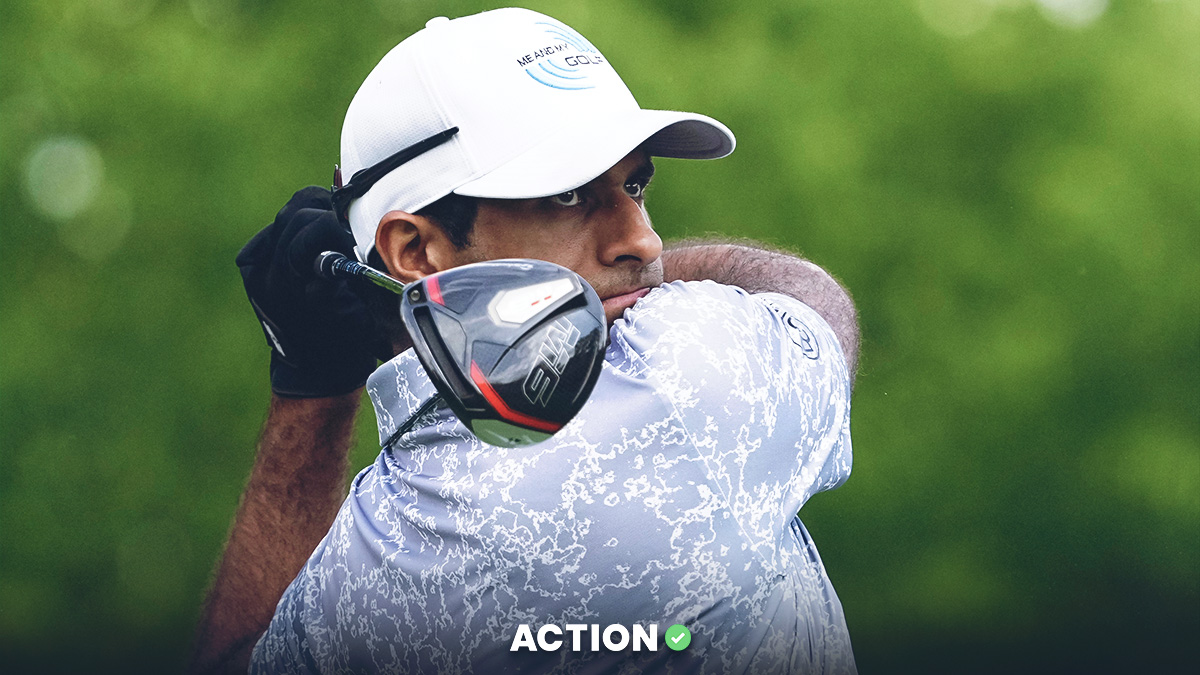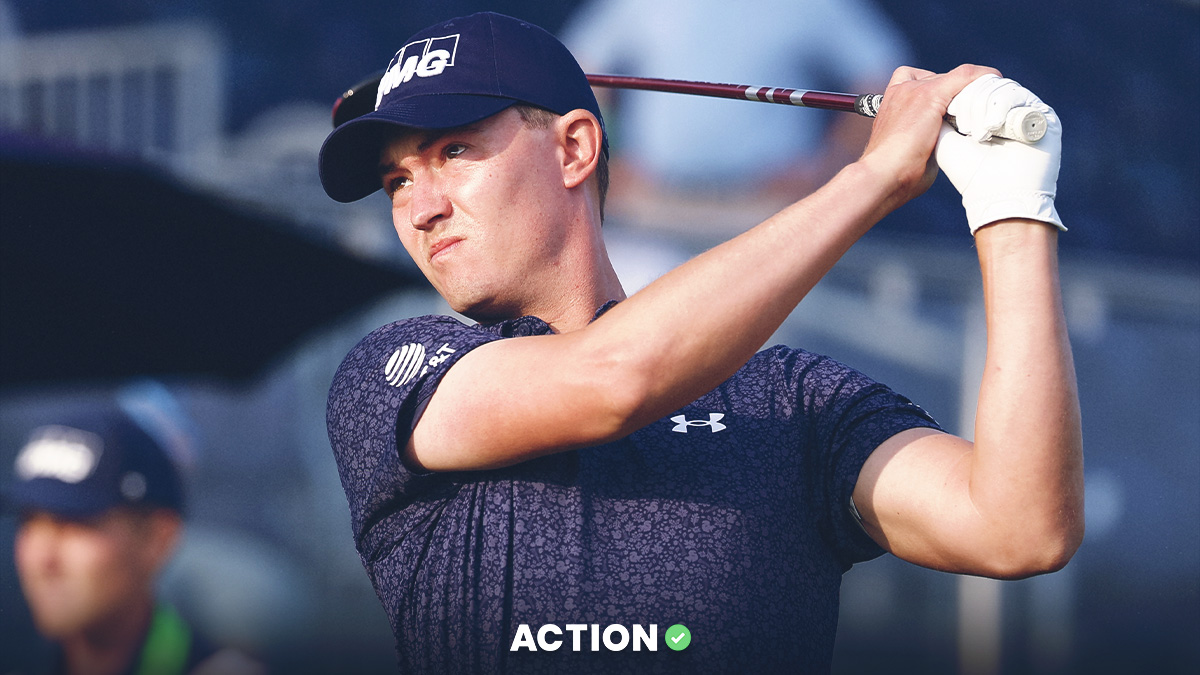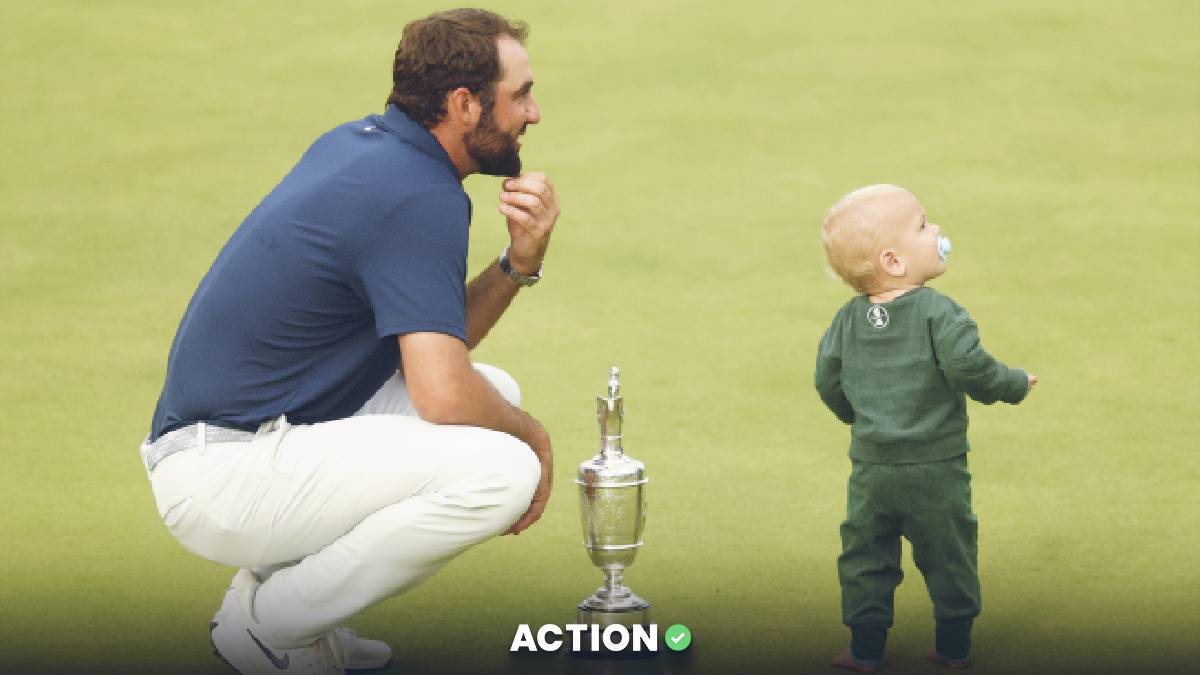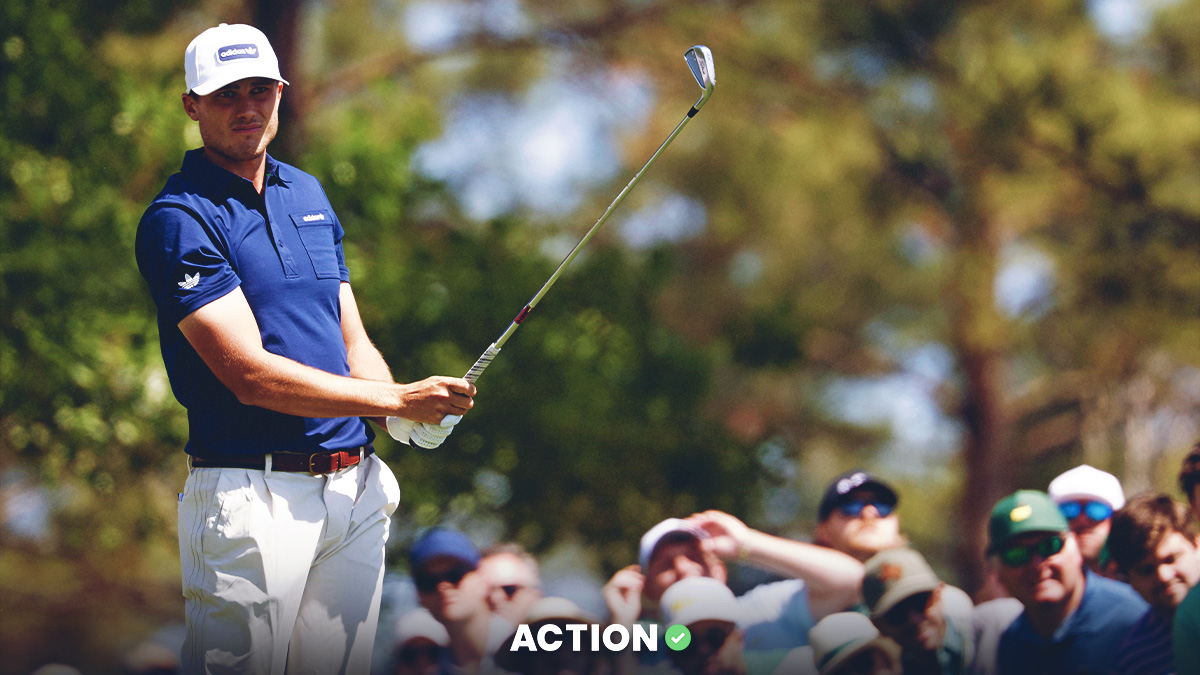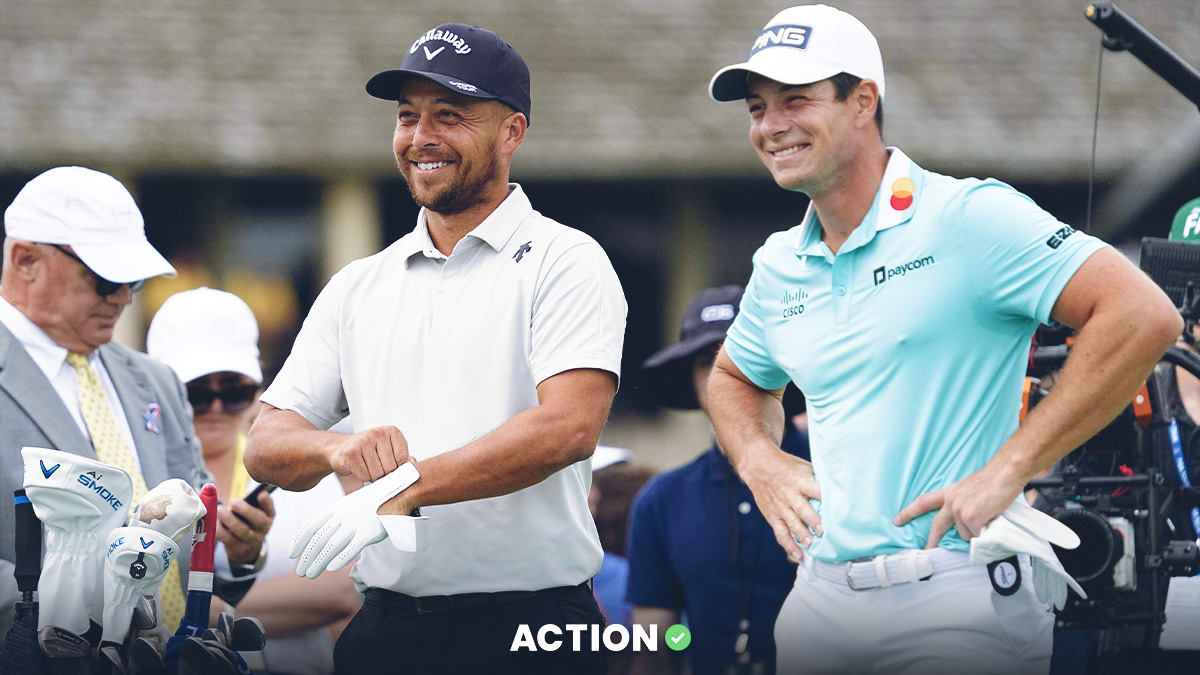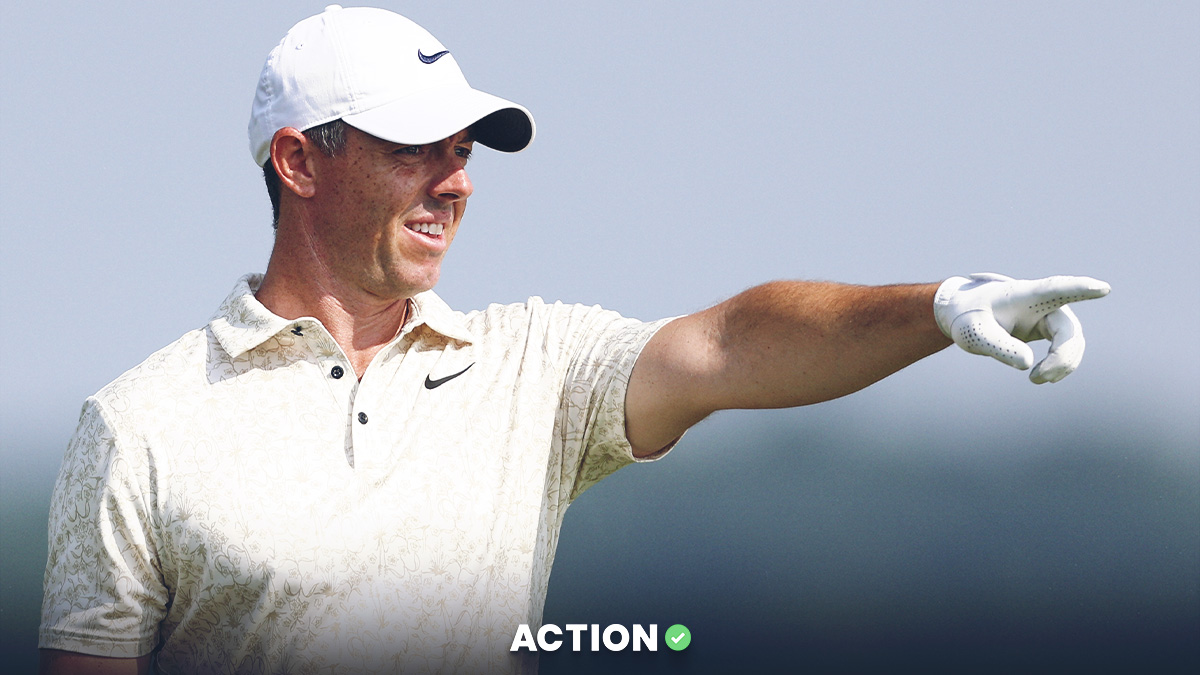The U.S. Open has been a favorites' tournament. Just look at the recent winners — Bryson, Brooks, Spieth, DJ, Rose, Webb, Rory, Tiger. Even the "longer" shots to bring it home haven't been slouches — Gary Woodland, former World No. 1 Martin Kaymer, Graeme McDowell.
Richard Bland looks out of place on that list. The 48-year-old entered the tournament anywhere from 250-1 to 1000-1, depending on the sportsbook. He's had a fine career across the pond, but just picked up his first-ever win on the European Tour in the Betfred British Masters last month in his 478th start. It was the second most starts without a win in Tour history.
DraftKings lists Bland at 25-1 to win entering Saturday, the 12th betting choice on the board. And history says Bland stands a chance this weekend. Twenty-three of the last 25 U.S. Open winners have been within two shots entering the weekend, which whittles the list down to six players if you think that trend holds. It's hard to score and make up big deficits in U.S. Open conditions.
So where would a win rank among the greatest U.S. Open and major longshots of all time? It's a complicated question we don't have a great answer to.
Sportsbooks didn't used to offer odds on every player in the field. They'd often list the 30-50 best or most popular players, and then you could bet the rest of the players as "The Field" at a shorter number, usually somewhere in the neighborhood of 4-1. You'd cash your ticket if any of the ~100 other players not listed won.
So when Michael Campbell topped Tiger Woods in 2005, he was part of the field, meaning he likely would have been well north of 100-1, at the very least. He actually needed to drain a putt on the last hole of sectional qualifying to get into the U.S. Open.
Some time in the last 15 years, bookmakers realized bettors couldn't resist the promise of these 500-1 payouts that usually turn out to be donations to the sportsbook, especially at a tournament like the U.S. Open.
The longest shot on record is Lucas Glover in 2009 at 150-1. He wasn't a favorite but had won on TOUR before, and posted 17 top 25s in 31 starts two years prior.
Phil Mickelson's win at the PGA Championship last month at 200-1 made him one of the longest winners in major history in the last two decades, but again, we don't have odds for every individual winner.
Via SportsOddsHistory, here are the odds for every U.S. Open winner since 1984.
Past U.S. Open Winners' Odds
*Denotes golfer was part of field bet
| Year | Golfer | Odds |
|---|---|---|
| 2020 | Bryson DeChambeau | 25-1 |
| 2019 | Gary Woodland | 60-1 |
| 2018 | Brooks Koepka | 25-1 |
| 2017 | Brooks Koepka | 30-1 |
| 2016 | Dustin Johnson | 12-1 |
| 2015 | Jordan Spieth | 8-1 |
| 2014 | Martin Kaymer | 40-1 |
| 2013 | Justin Rose | 25-1 |
| 2012 | Webb Simpson | 50-1 |
| 2011 | Rory McIlroy | 20-1 |
| 2010 | Graeme McDowell | 60-1 |
| 2009 | Lucas Glover | 150-1 |
| 2008 | Tiger Woods | 2-1 |
| 2007 | Angel Cabrera | 100-1 |
| 2006 | Geoff Ogilvy | 80-1 |
| 2005 | Michael Campbell | 6-1* |
| 2004 | Retief Goosen | 30-1 |
| 2003 | Jim Furyk | 20-1 |
| 2002 | Tiger Woods | 2-1 |
| 2001 | Retief Goosen | 4-1* |
| 2000 | Tiger Woods | 3-1 |
| 1999 | Payne Stewart | 25-1 |
| 1998 | Lee Janzen | 25-1 |
| 1997 | Ernie Els | 18-1 |
| 1996 | Steve Jones | 7-2* |
| 1995 | Corey Pavin | 22-1 |
| 1994 | Ernie Els | 14-1 |
| 1993 | Lee Janzen | 50-1 |
| 1992 | Tom Kite | 20-1 |
| 1991 | Payne Stewart | 13-1 |
| 1990 | Hale Irwin | 3-1 |
| 1989 | Curtis Strange | 8-1 |
| 1988 | Curtis Strange | 4-1 |
| 1987 | Scott Simpson | 18-1* |
| 1986 | Raymond Floyd | 25-1 |
| 1985 | Andy North | 50-1 |
| 1984 | Fuzzy Zoeller | 18-1 |


